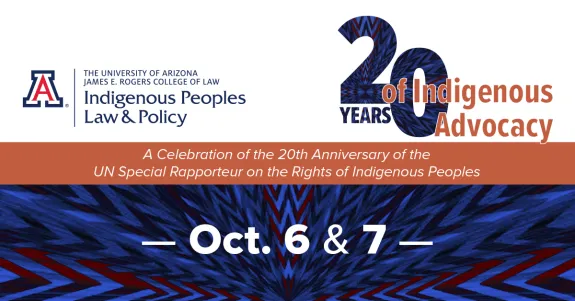
The 20 Years of Indigenous Advocacy: A Celebration of the 20th Anniversary of the UN Special Rapporteur on the Rights of Indigenous Peoples conference will be held October 6-7, fully online.
The conference will commemorate the 20th anniversary of the creation of the United Nations Special Rapporteur on the Rights of Indigenous Peoples mandate. This year also marks the 20th anniversary of the creation of the Indigenous Peoples Law and Policy (IPLP) Program and there will be a special event as part of the conference acknowledging the work of the IPLP Program and its graduates in promoting and protecting Indigenous peoples’ human rights around the world. There is a separate registration for the 20th Anniversary IPLP Celebration and Faculty and Alumni Recognition event (Oct. 6, 2:45 – 4:45pm Arizona/PDT Time). See the conference agenda for more details.
The conference will be co-convened by UN Special Rapporteur on the Rights of Indigenous Peoples and University of Arizona Law Lecturer in Law and Associate Director, IPLP Human Rights Clinical Programs, José Francisco Calí Tzay, and IPLP Faculty Co-Chair, Regents Professor Robert A. Williams, Jr.
The two-day conference will focus on the work and lessons learned over the course of 20 years of UN Indigenous human rights advocacy by the UN Special Rapporteur. Invited speakers include the Indigenous human rights advocates and movement leaders who were directly involved in the creation of the mandate, UN appointed officials involved in the initial launch of the mandate, Indigenous human rights defenders on the front lines of Indigenous human rights advocacy today, and surprise guests.
The conference will be fully online and live streamed via Zoom. The conference will be translated in English and Spanish.
Sponsors
We wish to thank the following sponsors for their generous financial support of IPLP's hosting of the mandate of the United Nations Special Rapporteur on the Rights of Indigenous Peoples and this 20th Anniversary Conference.
United Nations Special Rapporteur on the Rights of Indigenous Peoples
University of Arizona College of Law’s Indigenous Peoples Law and Policy Program
University of Arizona Agnese Nelms Haury Program in Environment and Social Justice
University of Arizona Latin American Studies Program
University of Arizona Human Rights Practice Program
NDN Collective
Dreiseszun Family Foundation
The Christensen Fund
October 6
Creating the Mandate (8:00 – 10:30am Arizona/PDT Time)
A panel of Indigenous human rights experts will address their experiences, recollections, and reflections on the creation of the mandate in 2001
Panelists:
- Moderator: Robert A. Williams, Jr., Regents Professor, E. Thomas Sullivan Professor of Law; Faculty Co-Chair, Indigenous Peoples Law and Policy Program
- Opening Remarks: Marc L. Miller, Dean & Ralph W. Bilby Professor of Law
- Francisco Calí Tzay, United Nations Special Rapporteur on the Rights of Indigenous Peoples, Lecturer in Law and Associate Director, IPLP Human Rights Clinical Programs
- Victor Hugo Godoy Morales, former Permanent Representative of Guatemala to the Organization of American States
- S. James Anaya, former United Nations Special Rapporteur on the Rights of Indigenous Peoples, University Distinguished Professor and Nicholas Doman Professor of International Law University of Colorado Law School
- Mario Ibarra (Mapuche Chile)
Implementing the Mandate (12:00 – 2:30pm Arizona/PDT Time)
A panel of Indigenous human rights experts will address their experiences, reflections, and assessments of the implementation of the mandate since 2001
Panelists:
- Moderator: Seánna Howard, Director, International Human Rights Advocacy Workshop; Professor of Practice & Affiliated Faculty Human Rights Practice & Latin American Studies
- Grand Chief Wilton Littlechild, Grand Chief of the Confederacy of Treaty Six First Nations and former member of Canadian Parliament
- Christine Evans, Human Rights Officer Office of the United Nations High Commissioner for Human Rights (OHCHR)
- Andrea Carmen, Executive Director, International Indian Treaty Council
- Paul Kanyinke Sena, Director of Indigenous Peoples of Africa Coordinating Committee
20th Anniversary IPLP Celebration and Faculty and Alumni Recognition (2:45 – 4:45pm Arizona/PDT Time)
Join IPLP alumni, faculty, and staff for a celebration and recognition of all the remarkable achievements of alumni, staff, students, and faculty of the IPLP program over the last 20 years.
Please register for the 20th Anniversary IPLP Celebration and Faculty and Alumni Recognition event separately from the 20 Years of Indigenous Advocacy conference.
October 7
Challenges and Possibilities for the Mandate (8:00 – 10:30am Arizona/PDT Time)
A panel of Indigenous human rights experts will address their assessments and reflections of challenges of implementing and realizing the goals of the mandate based their experiences and knowledge of the most pressing contemporary challenges confronting the mandate
Panelists:
- Moderator: Elisa Marchi, Assistant Professor of Practice, Human Rights Practice, Human Rights Attorney, Executive Committee Member
- Luis Rodriguez-Pinero Royo, Human Rights Officer, Business and Human Rights, Office of the United Nations High Commissioner for Human Rights (OHCHR)
- Valmaine Toki, Professor of Law, University of Waikato, Te Piringa Faculty of Law, prior Expert Member on the United Nations Permanent Forum on Indigenous Issues
-
Nick Tilsen, President and CEO, NDN Collective
Moving the Mandate Forward (12:00 – 2:30pm Arizona/PDT Time)
A panel of Indigenous human rights experts will address their assessments and reflections of how to advance the mandate based on their experiences and knowledge of the challenges in moving the mandate forward into the 21st century
Panelists:
- Moderator: Robert A. Williams, Jr., Regents Professor, E. Thomas Sullivan Professor of Law; Faculty Co-Chair, Indigenous Peoples Law and Policy Program
- Dr. Elifuraha Laltaika, Law Lecturer and Director of Research and Consultancy Tumaini University Makumira and Fellow in Residence, University of Stellenbosch, former UNPFII member
- Dr. Myrna Kay Cunningham, President of the Board, Fondo para el Desarrollo de los Pueblos Indígenas de América Latina y El Caribe (FILAC), former UNPFII chair
- Armstrong Wiggins, Director, Indian Law Resource Center Washington DC Office
- Closing Remarks: Francisco Calí Tzay, United Nations Special Rapporteur on the Rights of Indigenous Peoples, United Nations Special Rapporteur on the Rights of Indigenous Peoples, Lecturer in Law and Associate Director, IPLP Human Rights Clinical Programs
José Francisco Calí Tzay, United Nations Special Rapporteur on the Rights of Indigenous Peoples, Lecturer in Law and Associate Director, IPLP Human Rights Clinical Programs
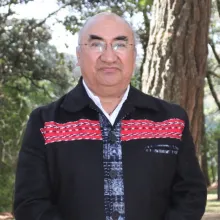
Francisco Calí, a Mayan Cakchiquel from Guatemala who served for 16 years as a member of the Committee for the Elimination of Racial Discrimination (CERD), is the first Indigenous member of a UN Treaty body. He was served as CERD’s President from 2014 to 2016 and as the Chairman of CERD’s Early Warning/Urgent Action Procedure from 2017 to December 2019. He represented Indigenous Peoples at the United Nations since the early 1980’s, addressing human rights violations against the Indigenous Peoples in Guatemala and around the world. He was an active participant over many years in the Intersessional Working on Group for the UN Declaration on the Rights of Indigenous Peoples, both as a representative of the International Indian Treaty Council and delegate with the government of Guatemala.
Mr. Calí Tzay is Maya Kaqchikel from Guatemala, with experience in defending the rights of Indigenous Peoples, both in Guatemala and at the level of the United Nations and the OAS.
He was founder and member of a different indigenous organizations in Guatemala and as well Ambassador of Guatemala to the Federal Republic of Germany and was President of the Committee for the Elimination of all forms of Racial Discrimination, a treaty body from which he was elected for four consecutive periods of 4 years each.
He was Director of Human Rights at the Ministry of Foreign Affairs of Guatemala; he was member of the Presidential Commission against Discrimination and Racism against Indigenous Peoples in Guatemala (CODISRA) and President of the National Reparation Program for Victims of the Internal Armed Conflict.
Robert A. Williams, Jr., Regents Professor, E. Thomas Sullivan Professor of Law; Faculty Co-Chair, Indigenous Peoples Law and Policy Program
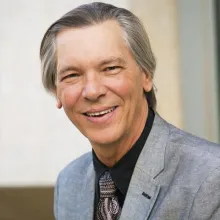
Robert A. Williams, Jr. is the Regents Professor, E. Thomas Sullivan Professor of Law and Faculty Co-Chair of the University of Arizona Indigenous Peoples Law and Policy Program. Professor Williams received his B.A. from Loyola College (1977) and his J.D. from Harvard Law School (1980). He was named the first Oneida Indian Nation Visiting Professor of Law at Harvard Law School (2003-2004), having previously served there as Bennet Boskey Distinguished Visiting Lecturer of Law. He is the author of The American Indian in Western Legal Thought: The Discourses of Conquest (1990), which received the Gustavus Meyers Human Rights Center Award as one of the outstanding books published in 1990 on the subject of prejudice in the United States. He has also written Linking Arms Together: American Indian Treaty Visions of Law and Peace, 1600-1800 (1997) and Like a Loaded Weapon: The Rehnquist Court, Indian Rights and the Legal History of Racism in America (2005). He is co-author of Federal Indian Law: Cases and Materials (6th ed., with David Getches, Charles Wilkinson, and Matthew Fletcher, 2011). His latest book is Savage Anxieties: The Invention of Western Civilization (Palgrave Macmillan 2012). The 2006 recipient of the University of Arizona Koffler Prize for Outstanding Accomplishments in Public Service, Professor Williams has received major grants and awards from the Soros Senior Justice Fellowship Program of the Open Society Institute, the John D. and Catherine T. MacArthur Foundation, the Ford Foundation, the National Endowment for the Humanities, the American Council of Learned Societies, the U.S. Department of Education, the U.S. Department of Justice, and the National Institute of Justice. He has been interviewed by Bill Moyers and quoted on the front page of the New York Times. He has represented tribal groups and members before the Inter-American Court of Human Rights, the Inter-American Commission on Human Rights, the United Nations Working Group on Indigenous Peoples, the United States Supreme Court, and the Supreme Court of Canada. Professor Williams served as Chief Justice for the Court of Appeals, Pascua Yaqui Indian Reservation, and as Justice for the Court of Appeals and trial judge pro tem for the Tohono O'odham Nation. He was named one of 2011's "Heroes on the Hill" by Indian Country Today for his human rights advocacy work as Lead Counsel for the Hul'qumi'num Treaty Group of Canada before the Inter-American Commission on Human Rights. He lives and works in Tucson, Arizona.
Seánna Howard, Director, International Human Rights Advocacy Workshop; Professor of Practice & Affiliated Faculty Human Rights Practice & Latin American Studies
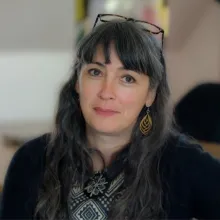
Seánna Howard teaches International Human Rights and Indigenous Peoples and the International Human Rights Advocacy Workshop. Professor Howard has been with the Indigenous Peoples Law and Policy Program since 2006, representing indigenous communities on precedent setting cases before the Inter-American and United Nations human rights systems.
Through the International Human Rights Advocacy Workshop, Professor Howard provides law students the opportunity to work on live cases and advocacy efforts before international human rights bodies. She has represented the Western Shoshone, the Chiricahua Apache, the Maya of the Toledo District in Belize, the Hul'qumi'num Treaty Group of Canada, and is currently lead counsel for the Navajo Nation on their petition to the Organization of American States. Currently, Professor Howard and her workshop students are supporting the mandate of the United Nations Special Rapporteur on the rights of indigenous peoples.
Elisa Marchi, Assistant Professor of Practice, Human Rights Practice; Human Rights Attorney
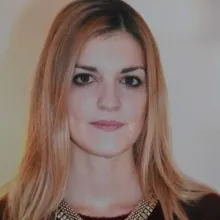
Elisa Marchi holds a Master of Laws (LLM), graduating cum laude from the University of Florence (Italy), a Master's in Human Rights and Conflict Management at the University of Sant'Anna, Pisa (Italy) and a Ph.D. in Legal Studies at the University of Florence. She was a visiting scholar at the University of Kansas (U.S), Brunel University (London), Centro de Investigación y Estudios Superiores en Antropología Social (Oaxaca, Mexico) and the Indigenous Peoples Law and Policy Program at the University of Arizona (U.S). Elisa has worked for several NGOs and legal clinics as a consultant and researcher in a vast range of topics including minority and indigenous rights, environmental rights, transitional justice, the rule of law, democracy in the Middle East and North African region, women rights and inmates' rights. Recently, she was a visiting human rights lawyer at the Inter-American Commission on Human Rights (Washington D.C.). Her current area of academic interest is at the intersection of legal study, conservation study, multiculturalism, and collective rights.
S. James Anaya, University Distinguished Professor and Nicholas Doman Professor of International Law University of Colorado Law School, former United Nations Special Rapporteur on the Rights of Indigenous Peoples
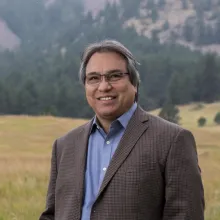
James Anaya has taught and written extensively on international human rights and issues concerning indigenous peoples. Among his numerous publications are his acclaimed book, Indigenous Peoples in International Law (Oxford Univ. Press (1996); 2d ed. (2004)), and his widely used textbook, International Human Rights: Problems of Law, Policy and Process (Wolters/Kluwer, 6th ed. 2011) (with Hurst Hannum and Dinah Shelton). He served as the United Nations Special Rapporteur on the Rights of Indigenous Peoples from May 2008 to June 2014.
Professor Anaya has lectured in many countries throughout the world. He has advised numerous indigenous and other organizations from several countries on matters of human rights and indigenous peoples, and he has represented indigenous groups from many parts of North and Central America in landmark cases before domestic and international tribunals, including the United States Supreme Court and the Inter-American Court of Human Rights. Among his noteworthy activities, he participated in the drafting of the United Nations Declaration on the Rights of Indigenous Peoples and was the lead counsel for the indigenous parties in the case of Awas Tingni v. Nicaragua, in which the Inter-American Court of Human Rights for the first time upheld indigenous land rights as a matter of international law. As UN Special Rapporteur on the Rights of Indigenous Peoples, Professor Anaya monitored the human rights conditions of indigenous peoples worldwide, addressed situations in which their rights were being violated, and promoted practical measures to secure indigenous peoples' rights, travelling frequently to meet with government officials and visit indigenous communities.
Prior to becoming a full time law professor, he practiced law in Albuquerque, New Mexico, representing Native American peoples and other minority groups. For his work during that period, Barrister magazine, a national publication of the American Bar Association, named him as one of "20 young lawyers who make a difference." Professor Anaya served on the law faculty at the University of Arizona from 1999 to 2016 and on the faculty of the University of Iowa from 1988 to 1999. Additionally, he has been a visiting professor at Harvard Law School, the University of Toronto, and the University of Tulsa.
Kanyinke Sena, Director of Indigenous Peoples of Africa Coordinating Committee
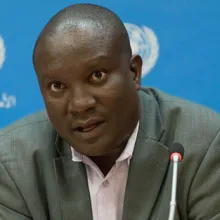
Kanyinke Sena is Ogiek from Kenya. He is an expert on Indigenous Peoples rights and served as chairperson of the UN Permanent Forum on Indigenous Issues and currently serving as member of the African Commission Working Group on Indigenous Populations and as Kenya Advocacy Officer, Minority Rights Group, International. He previously served as a member of Conservation International’s Indigenous Advisory Group (IAG) and as the East Africa Regional Representative for the Indigenous Peoples of Africa Coordinating Committee (IPACC), where he spearheaded Indigenous Peoples engagement in REDD+ in Africa. He also served in the UNREDD policy board, REDD+ Social and Environmental Standards Committee and spearheaded multi-stakeholder consultations in the preparation of REDD+ readiness packages for Kenya and Uganda serving a Consultant for the Forest Carbon Partnership Facility (FCPF) communities in Kenya and East Africa generally on diverse issues that relate to their rights. He has a Doctorate degree in Law from the University of Arizona and his thesis focused on indigenous Peoples rights in the context of carbon credit schemes in Kenya.
He serves as Director of Indigenous Peoples of Africa Coordinating Committee and is a former law lecturer, Egerton University in Kenya and Kenya Advocacy Officer, Minority Rights Group International. Former, member and chairperson, United Nations Permanent Forum on Indigenous Issues.
Dr. Elifuraha Laltaika, Law Lecturer and Director of Research and Consultancy Tumaini University Makumira and Fellow in Residence, University of Stellenbosch
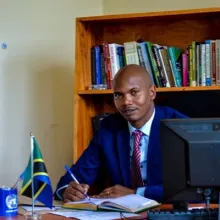
Dr. Elifuraha Laltaika is a Law Lecturer and Director of Research and Consultancy at Tumaini University Makumira and a Fellow in Residence at University of Stellenbosch. He holds a Doctorate in Law from the University of Arizona (USA), Master of Laws (LL.M)-from the University of Oregon (USA), LL.M from the University of Kwazulu Natal (South Africa) and a Bachelor of Laws (LL.B) from the University of Dar-Es-Salaam. A Fulbright alumnus, he served as a Harvard Law School visiting researcher and has guest-lectured/presented papers in several Universities abroad, including the University of California Berkeley (USA), University of Denver (USA), Luiss University (Italy), Roma Tree University (Italy) and the University of Philippines Baguio (Philippines). Dr. Laltaika is an attorney/member of the Bar Association of Tanzania mainland-the Tanganyika Law Society (TLS). During its 60th Anniversary, TLS recognized Dr. Laltaika’s “outstanding contribution” to the society’s Law Journal (JTLS). In 2016, Dr. Laltaika was a recipient of a research grant from UNESCO’s Knowing Our Climate in Africa Program.
Dr. Laltaika’s publications comprise book chapters and several journal articles on various aspects notably the interface between human rights and extractive industries; environmental and natural resources law; indigenous peoples’ rights, human rights law and policy and public international law. Recent publications include: Laltaika, E. Legal Protection of the Environment from Negative Impacts of Extractive Operations In Tanzania. African Nazarene University Law Journal, 38-57, 2017; Laltaika, E. Pastoralists’ Right to Land and Natural Resources in Tanzania. 15 Oregon Review of International Law, 43-61, 2013 and Laltaika, Elifuraha. (2015). Business and Human Rights in Tanzania: Indigenous Peoples’ Experiences with Access to Remedy. In Doyle C. (ed.), Business and Human Rights: Indigenous Peoples’ Experiences with Access to Remedy. Case studies from Africa, Asia and Latin America (pp. 211-231). Chiang Mai, Madrid, Copenhagen: AIPP, Alm.ciga, IWGIA. Dr. Laltaika’s ongoing research projects examine rights of indigenous peoples’ with disability (in collaboration with Dr. Cathal Doyle- Research Fellow at Middlesex University London Law School), and Corporate Accountability in Africa (in collaboration with Professor Bonita Meyersfeld of the University of Witwatersrand, South Africa). In 2016, the President of the UN Economic and Social Council (ECOSOC) appointed Dr. Laltaika to serve as expert member of the UN Permanent Forum on Indigenous Issues.
Prior to that, he worked as a Senior Fellow at the Office of the High Commissioner for Human Rights in Geneva, Switzerland and honed his research skills in the area of indigenous peoples’ rights at the Indigenous Peoples Law and Policy (IPLP) Program of the University of Arizona through working closely with Professors James Anaya and Robert, Williams, Jr., among others. Dr. Laltaika teaches these courses (among others): Constitutional Law; Mining Oil and Gas Law; Public International Law; International Humanitarian Law, Advanced Legal Research and Writing, Human Rights Law, Land Law and Environmental Law.
Andrea Carmen, Executive Director, International Indian Treaty Council
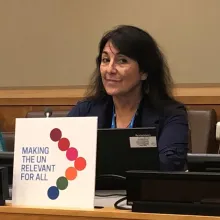
Andrea Carmen, Yaqui Nation, became a staff member of the International Indian Treaty Council in 1983 and its Executive Director in 1992. Andrea was IITC’s team leader for work on the UN Declaration on the Rights of Indigenous Peoples and in 1997 was one of two Indigenous representatives to formally address the UN General Assembly for the first time at the UN Earth Summit +5. In 2006, Andrea was selected as Rapporteur for the UN Expert Seminar on Indigenous Peoples’ Permanent Sovereignty over Natural Resources and their Relationship to Land, the first Indigenous woman to serve as Rapporteur for an UN Expert Seminar. She has been an invited expert at UN sessions addressing a wide range of issues impacting Indigenous Peoples. In 2019 Andrea was selected to represent North America Indigenous Peoples on the Facilitative Working Group for the UNFCCC Local Communities and Indigenous Peoples Platform in its first three years of operation and served as its 2nd co-chair until May 2021.
Grand Chief Wilton Littlechild
Wilton Littlechild, Ph.D., is a Cree chief, residential school survivor, and lawyer who has worked both nationally and internationally including with the United Nations to advance Indigenous rights and Treaties. He has also – through leadership with the Truth and Reconciliation Commission – raised awareness of former Canadian policies that decimated the livelihood and culture of Indigenous Canadians.
Born in Alberta, Wilton Littlechild was raised largely at residential schools from 1951 to 1964, where he spent 14 years surviving through study and sport. After leaving residential school, he studied physical education at the University of Alberta and law at the University of New Mexico, where he continued his balance of academics and hockey.
Chief Littlechild was a member of the 1977 Indigenous delegation to the United Nations (UN), and worked on the UN Declaration on the Rights of Indigenous Peoples. He organized within the UN to increase Indigenous input in the economic and social issues the UN tackles. In the 1980s, he worked on the lawsuit to prevent patriation of the Canadian Constitution until the Aboriginal and Treaty Rights were protected and, in more recent years, has been a regional and International Chief on Treaties No. 6, 7, 8.
Chief Littlechild has been a member of parliament, Vice-President of the Indigenous Parliament of the Americas, North American representative to the UN Permanent Forum on Indigenous Issues, and a chairperson for the UN Expert Mechanism on the Rights of Indigenous Peoples and the Commission on First Nations and Métis Peoples and Justice Reform.
In addition to his ongoing work with the Truth and Reconciliation Commission, he’s continued to run his own law firm in Erminiskin Reserve, Alberta, and maintains his commitment to sport. He has been inducted into seven Sports Halls of Fame.
He has been awarded the Order of Canada and in 1993, the Canadian government awarded Chief Littlechild the Canada 125 Medal. He is a 2015 Laureate of the Indspire Awards and was recently honoured with the Alberta Award of Excellence.
Professor Valmaine Toki, Professor of Law, University of Waikato, Te Piringa Faculty of Law
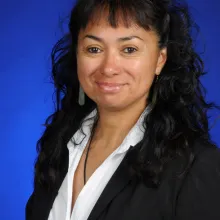
Dr. Valmaine Toki is a Professor of Law, Ngapuhi Ngati Wai Ngat Whatua descent, and the first Maori and first New Zealander appointed as an Expert Member on the United Nations Permanent Forum on Indigenous Issues. Before joining Te Piringa, Valmaine taught at the Faculty of Law, University of Auckland. Prior to this, as a He Ture Pumau scholar, Valmaine worked for Te Ohu Kai Moana Trustee Ltd on Māori fisheries, aquaculture and asset allocation. Valmaine is a Barrister and Solicitor of the High Court of New Zealand and has assisted in cases to the Māori Land Court, the Environment Court, and the High Court.
Her 2018 book entitled "Indigenous courts, self determination and criminal justice" and focuses on her recent research within the area of recognition and implementation of Indigenous rights.
Myrna Kay Cunningham Kain, President of the Board, Fondo para el Desarrollo de los Pueblos Indígenas de América Latina y El Caribe (FILAC), former UNPFII chair
As one of the best-known figures of the global indigenous movement, Dr. Mirna Kay Cunningham Kain is notable for her excellent merits as a university graduate, researcher, public health specialist, member of parliament, and social activist for the rights of indigenous peoples, and in particular indigenous women from Nicaragua, America, and all over the world.
She was governing minister delegate of the North Caribbean Autonomous Region in Nicaragua. In the 1980s, she participated in the peace process and the establishment of an autonomous regime for indigenous peoples, Afro-descendants, and ethnic communities of the Caribbean coast of Nicaragua. She was also a member of the Regional Autonomous Council of the North Caribbean Coast and the National Assembly (parliament) of Nicaragua.
In the 1990s, she created and founded the University of the Autonomous Regions of the Caribbean Coast of Nicaragua (URACCAN), becoming its founding president from 1994 to 2002. URACCAN was one of the earliest instances of intercultural higher education in Latin America and the Caribbean. Dr. Cunningham was also Secretary General
of the Inter-American Indigenist Institute and founded the Intercultural Indigenous Chair of the Intercultural Indigenous University of the FILAC.
Between 2011 and 2013, she served as member of the UN Permanent Forum for Indigenous Issues, becoming chair. She is currently chair of the Board of Directors of the Fund for the Development of Indigenous Peoples of Latin America and the Caribbean (FILAC).
Her devotion to indigenous peoples’ rights has earned her various awards, including being named Public Health Heroine of the Americas by PAHO/WHO and Woman of Distinction by NGO CSW. She was also awarded an honorary doctorate by the National Autonomous University of Mexico (UNAM) and received the Leadership Award from the women’s organization MADRE, the FILAC’s Order of the Fifth Sun (Orden del Quinto Sol), the first Ibero-American Award for Human Rights and Culture of Peace, the Social Justice Award from the dean of the School of Law of the City University of New York (CUNY), and the Samuel Rubin award from the medical association in New York.
In her country she has received accolades from the Ministry of Health, the Nicaraguan Women’s Institute, the National Assembly, and the Medicinal Plant Network, and the Reynaldo Antonio Téffel award granted by the Coordinating Body of National Civil Society Organizations, along with recognition from the Professors’ Association of the National Council of Universities and the Order of the Autonomy granted by the Regional Autonomous Councils of the North and South Caribbean, among other awards.
Victor Hugo Godoy Morales, former Permanent Representative of Guatemala to the Organization of American States
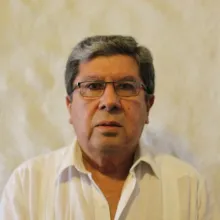
Victor Hugo Godoy Morales is a politician and native of Guatemala. He was the deputy to the National Constituent Assembly from 1984 to 1985. Where he then became the Deputy to the Congress of the Republic between the years of 1986 and 1991. In 1992, Morales Godoy became a member of the National Reconciliation Commission, a mediator in the Peace Talks Process until 1993. In 2000 and 2016, Godoy Morales held the position as Chairman of the Presidential Commission on Human Rights. Godoy Morales was a Minister of Labor and Social Security, as well as an Ambassador to Guatemala to the Organization of American States (OAS) and a Member of the Joint Commission for the Reform and Participation of the Indigenous Agreement of the Peace Accords.
Nick Tilsen, President and CEO, NDN Collective

Nick Tilsen, President & CEO, is a citizen of the Oglala Lakota Nation. Tilsen has over 18 years of experience building place-based innovations that have the ability to inform systems change solutions around climate resiliency, sustainable housing and equitable community development. He founded NDN Collective to scale these place-based solutions while building needed philanthropic, social impact investment, capacity and advocacy infrastructure geared towards building the collective power of Indigenous Peoples. Tilsen has received numerous fellowships and awards from Ashoka, Rockefeller Foundation, Bush Foundation and the Social Impact Award from Claremont-Lincoln University. He has an honorary doctorate degree from Sinte Gleska University.
Armstrong Wiggins, Director, Indian Law Resource Center Washington DC Office
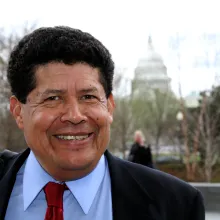
Armstrong Wiggins is director of the Washington, DC Office of the Indian Law Resource Center. He is a Miskito Indian from Nicaragua. Wiggins has testified on issues related to the rights of indigenous people at the Organization of American States and the United Nations.
Christine Evans, Human Rights Officer Office of the United Nations High Commissioner for Human Rights
Christine holds a Master of Laws (LL.M) from Lund University and a Ph.D in International Law and Legal Studies from the London School of Economics. She is a Human Rights Officer and has worked with the Office of the High Commissioner for Human Rights (OHCHR) since 2003. She has supported various human rights mechanisms, including human rights treaty bodies and special procedures of the Human Rights Council.
Luis Rodriguez-Pinero Royo, Human Rights Officer, Business and Human Rights, Office of the United Nations High Commissioner for Human Rights
Luis Rodríguez-Piñero is a Human Rights Officer in the Business and Human Rights Unit of the OHCHR. He holds a Ph.D in Law from the European University Institute (Florence) and a degree in Political Science and Administration from the Autonomous University of Madrid. He has combined his academic activity with his work as a lawyer in international and domestic cases concerning the rights of indigenous peoples in various countries. He has also worked for the International Labor Organization and was a consultant for the Inter-American Commission on Human Rights, the United Nations Economic Commission for Latin America (ECLAC), and a large number of non-governmental organizations and indigenous organizations and communities around the world. He has published a monograph, Indigenous Peoples, Postcolonialism, and International Law: The ILO Regime (1919-1989) (2005), as well as numerous articles for specialized journals. He was formerly part of the Support Program for the United Nations Special Rapporteur on Indigenous Peoples at the University of Arizona.
Mario Ibarra
Mario Ibarra (Mapuche Chile) is an Indigenous activist. He was detained and imprisoned after the 1973 Chilean military coup, and forced into permanent exile in Geneva.” He served as the Geneva representative for the International Indian Treaty Council (IITC) while he pursued his studies at the Geneva Institute. In the early years following the 1977 “International NGO Conference on Discrimination Against Indigenous Populations in the Americas,” Mario was the only person representing Indigenous issues on a day-to-day basis during the periods between the two annual human rights meetings. He worked closely with Augusto Willemsen-Díaz—a Guatemalan international law specialist and long-time staff member of the UN Human Rights Secretariat—learning every aspect of UN procedures, passing his knowledge on to other Indigenous representatives.
